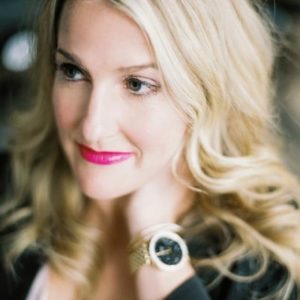When Sasha Shillcutt, M.D., M.S., was in medical school, she spoke with fellow students for support on days when she felt mentally exhausted. Now, as a physician, she has found a way to replicate those peer supports groups.
Dr. Shillcutt, an associate professor in the UNMC Department of Anesthesiology, started a text group for women physicians to discuss the challenges and stresses of a career in medicine. The text group started with ten doctors. As the group grew, she started a Facebook group. Soon, the ten women physicians grew to almost 9,000 discussing a wide variety of subjects including career advancement, resiliency, and burnout.
“I was surprised,” said Dr. Shillcutt. “I didn’t anticipate having thousands of doctors in the group. When I first started the group, I thought we might increase to thirty women. I allowed everyone to add two people with the plan that we would end up with thirty, but it grew rapidly.”

Sasha Shillcutt, M.D.
Dr. Shillcutt says one of the reasons the online group has grown has been the positive interactions between members.
“The overarching message is positive and encouraging. There is very little negativity in the group. Physicians come into the group, and they may be burned out and stressed, but they find a lot of support. It’s a very uplifting and resilient place.”
One piece of advice Dr. Shillcutt shares in the online group is to find thirty minutes of alone time or an hour a day, if possible. Dr. Shillcutt said even though she’s an extrovert, she needs some alone time to refuel from the stress of her job.
“I’m protective about having thirty minutes to myself every day. I call it my hour of power. I know myself pretty well now, and I can tell when I’m starting to feel burned out. I don’t think you can be in medicine and never feel burned out,” Dr. Shillcutt said. “Burnout is a spectrum. I know when I need to meditate, to write, to take a walk or to exercise. I believe alone time to recharge helps me keep the joy in medicine, and women physicians in the group have learned the same.”
The alone time and online support group keep Dr. Shillcutt invested in her medical career.
“You could be a perfect weight, have the ideal blood pressure, but you could still feel sick from anxiety and depression. Only you know if you’re well or not. If you don’t feel well, you need to do some internal investigation and tell yourself it’s okay to do so. Mental exercise is as vital as physical exercise.”
Dr. Shillcutt wrote about the power of social media and how it provides a platform to bring to light some of the challenges women in medicine face and also allow women to connect in ways not previously possible. The article, titled, “Social Media and Advancement of Women Physicians,” is co-authored by colleague Julie Silver, M.D., Harvard Medical School’s Department of Physical Medicine and Rehabilitation.
Dr. Shillcutt’s posts can be found on Facebook at @becomebraveenough and on Twitter at @rubraveenough.